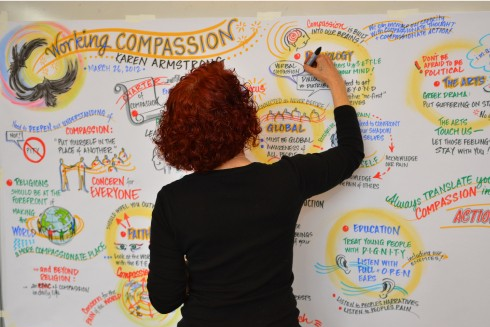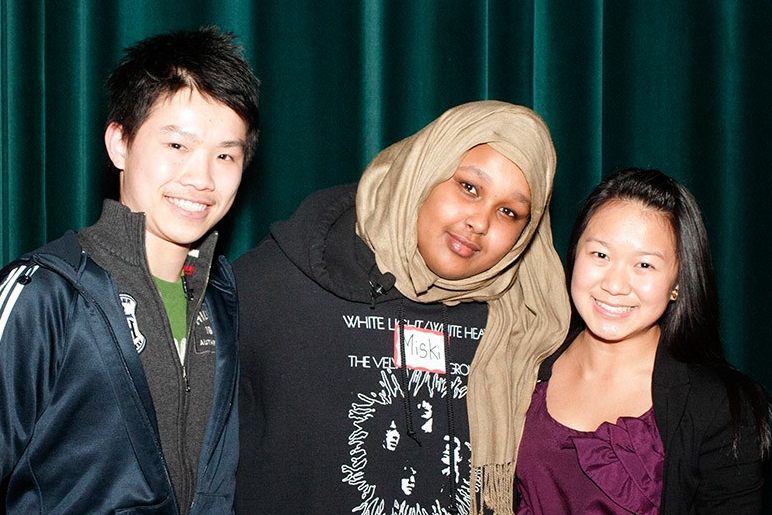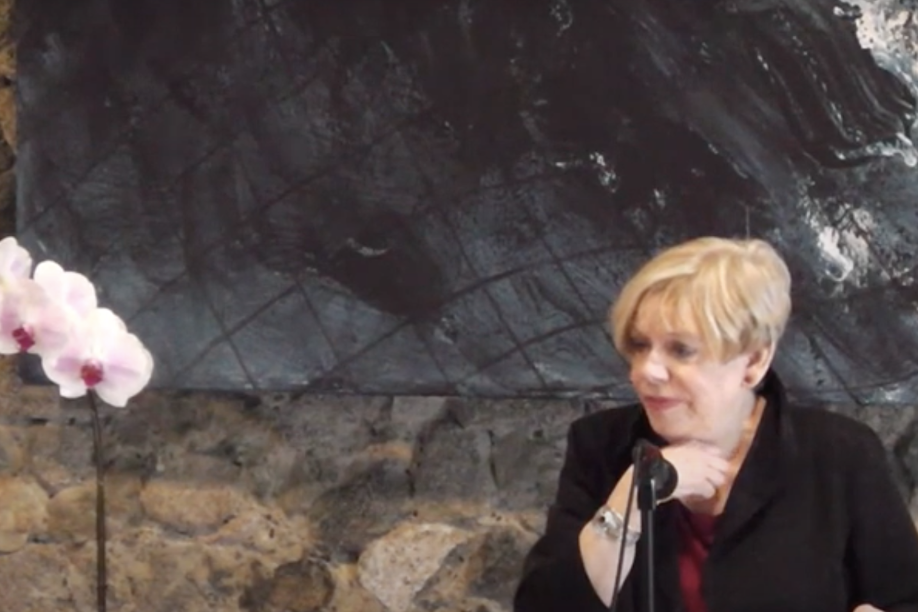- About
- People
- Shared Learning
- What We Do
- Consulting Services
- Services
- Dialogue in Action
- COVID-19 and Public Health: The Faith and Spiritual Leaders Dialogue Series
- Framework for Diabetes in Canada
- Burnaby Business Recovery Task Force
- CleanBC Job Readiness Workshops
- Perspectives on Reconciliation
- Your Voice. Your Home.
- Establishing a Chinese-Canadian Museum
- Citizen Dialogues on Canada’s Energy Future
- Clients and Partners
- Get in Touch
- Knowledge & Practice
- Beyond Inclusion
- Dialogue & Engagement Resources
- Dialogue Dispatch Newsletter
- International Climate Engagement Network (ICEN)
- Strengthening Canadian Democracy
- Talk Dialogue to Me Podcast
- Initiatives
- Signature Events
- Jack P. Blaney Award for Dialogue
- Award Recipients
- 2021/22: Reimagining Social Justice and Racial Equity with adrienne maree brown
- 2019/20: Climate Change and Human Rights with Sheila Watt-Cloutier
- 2017/18: Peace, Pluralism and Gender Equality with Alice Wairimu Nderitu
- 2015/16: Climate Solutions with Tim Flannery
- 2013/14: Reconciliation with Chief Robert Joseph
- 2011/12: Twelve Days of Compassion with Karen Armstrong
- 2009/10: Widening the Circle with Liz Lerman
- 2005: Corporate Social Responsibility and the Right to Health with Mary Robinson
- 2002: Environmental Sustainability with Maurice Strong
- Nomination Details
- History of the Award
- Award Recipients
- Bruce & Lis Welch Community Dialogue
- 2022: Facing the Flames: New and Old Ways of Co-Existing with Fire with Joe Gilchrist and Paul Hessburg
- 2021: All My Relations: Trauma-Informed Engagement with Karine Duhamel
- 2019: Power of Empathy with Kimberly Jackson Davidson
- 2019: Rethinking BC Referendums with John Gastil
- 2017: Strengthening Democratic Engagement with Valerie Lemmie
- 2015-16: THRIVE! Surrey in 2030
- 2014: Citizen Engagement and Political Civility with Dr. Carolyn J. Lukensmeyer
- 2013: Building a Culture of Participation with Dave Meslin
- 2012: Riots and Restorative Justice with Dr. Theo Gavrielides
- 2011: Growing Out of Hunger with Will Allen
- 2010: The Age of Unequals with Richard Wilkinson
- Jack P. Blaney Award for Dialogue
- Consulting Services
- News
- Give
Twelve Days of Compassion with Karen Armstrong (2011/12)
Simon Fraser University’s Centre for Dialogue hosted a citywide conversation on compassion with world-renowned author and TED Prize winner Karen Armstrong as part of the 2012 Jack P. Blaney Award for Dialogue. The award recognized Karen Armstrong for a lifetime of outstanding achievement in advancing understanding about and among world religions, and promoting compassion as a way of life.
About Karen
Karen Armstrong is a former Catholic nun who left the convent to study literature, becoming one of the most provocative and original thinkers on the role of religion in the modern world, and a leading international authority on faiths, religious fundamentalism and monotheism.
Her poignant and captivating talks have sparked worldwide debate and healthy discussion. Her bestselling books, including Twelve Steps to a Compassionate Life and A History of God, examine the differences and the profound similarities between Christianity, Islam and Judaism, and their impact on world events.
In 2008, she was awarded the TED Prize in recognition and support of her call for a council of religious and spiritual leaders to draw up a “Charter for Compassion" that applies shared moral priorities to foster greater global understanding based on the principles of justice and respect. The project has grown to a considerable international following, and a network of Compassionate Cities is emerging that endorse the Charter and find ways to implement it practically, realistically and creatively.
As a speaker and writer, she asserts that all major religions embrace the core principle of compassion and the Golden Rule, and also emphasizes that many of today’s religions bear similar strains of fundamentalism borne of frustration with contemporary life and current events.
Charter for Compassion
The Charter is a call to restore the Golden Rule to the center of religious, moral and civic life through listening, understanding and treating all others as we wish to be treated ourselves. Not simply a statement of principle, the Charter is a summons to take creative, practical and sustained action to create a just economy and a peaceful world.
Drafted in 2009 by a multi-faith, multi-national council of thinkers, leaders and citizens as part of Karen Armstrong's TED Prize wish, the Charter has been affirmed by more than 80,000 individuals, communities, cities and schools. Click here to learn more and to view Armstrong's 2008 TED Prize talk.
Events
The Centre worked with a network of community partners to hold “Twelve Days of Compassion” over the period March 19 to 30, 2012. The resulting events created 5,500 person-hours of community engagement with live audiences and engaged hundreds-of-thousands more to explore the concept of compassion through regional and national media coverage.
-
March 20, 2012

March 20, 2012
Simon Fraser University President Andrew Petter and Morris J. Wosk Centre for Dialogue Academic Director Mark L. Winston presented the 2012 Jack P. Blaney Award for Dialogue to Karen Armstrong on March 20.
-
March 21, 2012

March 21, 2012
The Compassion in Commerce Vancouver Board of Trade luncheon featured Karen Armstrong in conversation with Carole Taylor, Chancellor of Simon Fraser University and Governor of The Vancouver Board of Trade.
-
March 22, 2012

March 22, 2012
This feature public event of the 2012 Jack P. Blaney Award for Dialogue included a lecture titled “What is Religion?”, the inaugural “State of the Charter for Compassion” global address and the public launch of the Greater Vancouver Compassion Network.
-
March 23, 2012

March 23, 2012
This breakfast event celebrated compassionate acts by Metro Vancouver municipalities and provided a forum to discuss the role of compassion within the context of the wordwide Compassionate Cities movement and the internationally recognized Charter for Compassion.
-
March 23, 2012

March 23, 2012
More than 250 members of the Muslim ummah and civil society attended the event, which more broadly discussed “The Relevance Today of the Life of The Holy Prophet Muhammad (peace be upon him and his family)."
-
March 26, 2012

March 26, 2012
This one-day academic symposium brought together 100 scholars, researchers and practitioners working in the domain of compassion and related moral consciousness.
-
March 27, 2012

March 27, 2012
The Compassion into Action Intergenerational Forum engaged 200 high school youth and significant adults in their lives to put compassion into action.
-
March 28, 2012

March 28, 2012
This special episode of the CBC Radio Studio One Book Club featured Karen Armstrong in discussion about her book Twelve Steps to a Compassionate Life.
-
March 29, 2012

March 29, 2012
The Compassion in Religion student conference was hosted by Iona Pacific Inter-religious Centre at Vancouver School of Theology.
Award Program Outcomes
Outcomes noted in our Community Impact Report include:
- Hosting Armstrong's State of the Charter for Compassion Global Address and the public unveiling of the Greater Vancouver Compassion Network, part of an international movement to build compassionate communities
- Co-launching a compassionate cities initiative to 14 Metro Vancouver municipalities with the Greater Vancouver Compassion Network
- Promoting curriculum developed by the Vancouver School Board to teach high school students about compassion
Select Media & Commentary
- Compassion is Not 'Soft,' It's the Key to Global Survival, Acclaimed Author Insists
The Vancouver Sun, March 28, 2012 (front page story) - In Search of Compassion
The Vancouver Sun, April 6, 2012 - Islamophobia: We Need to Accept the 'Other'
The Globe and Mail, March 26, 2012 - Karen Armstrong On The State Of The Charter For Compassion
Huffington Post, March 22, 2012
ABOUT THE JACK P. BLANEY AWARD FOR DIALOGUE
The Jack P. Blaney Award for Dialogue is presented to an individual who exemplifies, internationally, the spirit and programs of SFU's Morris J. Wosk Centre for Dialogue. Recipients of the award have demonstrated excellence and accomplishments in using dialogue to further complex issues of public importance.

